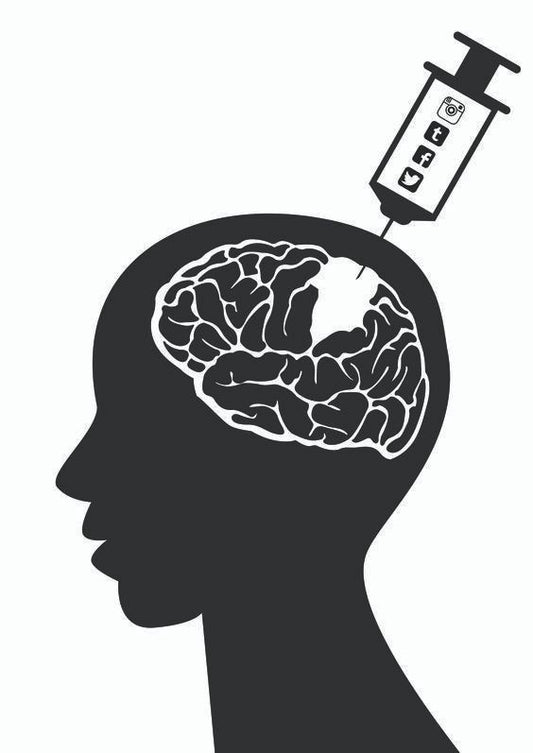
How to Combat Stigma of Mental health
How to Combat Stigma of Mental health
Stigma occurs when individuals hold negative perceptions and judgments about someone based on a specific characteristic or attribute, such as their mental illness, disability, cultural background, or skin color.
Stigma in the context of mental health occurs when individuals are defined and judged primarily by their illness rather than being seen as individuals with unique experiences.
For people with mental health issues, experiencing social stigma and discrimination can exacerbate their problems and make it more challenging to recover. It often leads to a fear of seeking help due to the potential stigmatization they may face.
It is crucial to combat stigma and discrimination surrounding mental health as they create barriers to individuals receiving the support they need. By challenging these negative perceptions and promoting understanding, we can create a more inclusive and supportive environment that facilitates recovery and well-being for everyone.
Stigma can manifest in many ways
- Social stigma refers to biased attitudes and discriminatory behaviors directed toward individuals with mental health conditions. It can result in social exclusion, isolation, and the perception that those with mental health issues are "weak" or "dangerous."
- Self-stigma occurs when individuals internalize societal stereotypes and develop negative self-perceptions as a result of their mental health challenges. This can significantly impact their self-esteem, self-worth, and willingness to seek help.
- Institutional stigma involves the perpetuation of stigma by institutions such as healthcare systems, workplaces, and educational settings. This can occur through policies, practices, or a lack of support for individuals with mental health conditions, creating barriers to accessing appropriate care and accommodations.
There is a need to understand that mental health issues are quite normal and they should not be treated in any discriminatory manner as well as stigma revolving around mental health should be stopped.

Effects of mental health stigma
The pervasive stigma surrounding mental health poses significant risks to individuals already grappling with their mental well-being. This harmful stigma not only exacerbates the challenges they face, but also perpetuates a cycle of negative consequences. It hampers their ability to seek professional help, leaving them isolated and unsupported.
Furthermore, it breeds a lack of understanding from family and the community, leaving them feeling alienated and misunderstood. Tragically, the workplace can become a breeding ground for bullying, eroding their self-esteem and shattering their confidence. Worst of all, the stigma instills a belief that they are destined for failure and burdensome to those around them. In this eye-opening exploration, we unravel the insidious effects of mental health stigma and shed light on the urgent need for change.
How to combat issues faced by stigma
- Seeking treatment is essential, even if you may feel hesitant or resistant to acknowledge your need for it. It's important not to allow the fear of being stigmatized with a mental illness to hinder you from seeking the help you require. By pursuing treatment, you can find relief through the identification of underlying issues and the alleviation of symptoms that disrupt your professional and personal spheres.
- Avoid isolating yourself. When faced with a mental illness, you might hesitate to confide in others about your condition. However, it is important to recognize that your loved ones, such as family, friends, religious leaders, or community members, can provide invaluable support if they are aware of your mental health struggles
- Encourage Help-Seeking Behavior. It is important to Promote the importance of seeking help for mental health issues and encourage individuals to access appropriate support. Normalizing conversations about mental health treatment and therapy will also be of great support in combating the situation
- Promoting Mental Health in the Workplace will Encourage employers to implement mental health policies and provide resources and support for employees.
- Support Anti-Stigma Campaigns and Get involved with local or national mental health organizations and support their anti-stigma campaigns. This will break down the stigma and make it a safer place.

Challenging misconceptions about mental health
Insufficient understanding, limited education, biased perceptions, and a general fear or apprehension toward individuals with mental illness all contribute to the perpetuation of stigma. There is a need to understand that mental disorders are not something that makes a person “crazy” they are normal and are required to be treated by a professional. Awareness should be created regarding mental fitness so that the personal lives of people aren’t disturbed. It is also crucial to seek out credible sources of information regarding mental health disorders and actively educate oneself when discovering that a friend, family member, or colleague is experiencing a mental illness.
Crucially, it is the responsibility of every individual to play a part in dismantling the stigma surrounding mental health. This involves proactively educating oneself about mental health issues and gaining a deeper understanding of the lived experiences of those dealing with these conditions. By doing so, individuals can contribute to breaking down prevalent misconceptions and stereotypes, not only within themselves but also in others.
To know more about How to overcome the Impact of Body Dysmorphia on Mental Health read here
To know more about The Impact of Technology on Human Psychology: Analyzing the Psychological Impact of Social Media read here




